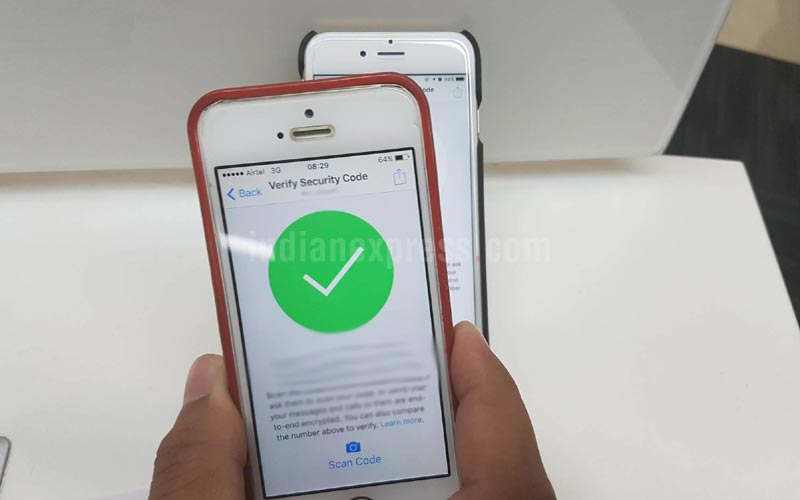
The announcement comes amid intense discussion over privacy, backdoors and terrorism. The company first announced its intention to roll out encryption back in 2014, when it was working on integrating a protocol named Textsecure, created by Open Whisper Systems.įor the past three years, we’ve been developing a modern, open source, strong encryption protocol for asynchronous messaging systems, designed to make seamless end-to-end encrypted messaging possible,” Moxie Marlinspike, the founder of Open Whisper Systems, said in a blog post. Technically speaking, the messages are encrypted with a private key and only the recipient has the decryption key. Not even WhatsApp itself.įrom now on when you and your contacts use the latest version of the app, every call you make, and every message, photo, video, file, and voice message you send, is end-to-end encrypted by default, including group chats,” the company blog reads.Įnd-to-end encryption ensures messages can be read only by its rightful owners.

It means your messages are immune to snooping and can’t be intercepted by hackers, governments or any other prying eyes. It can be found in Settings>Account>Security>”Show security notifications”.Have you opened your WhatsApp app recently? If you see a pop-up that reads “ messages you send to this chat and calls are now secured with end-to-end encryption,” your messages are more private than ever! However, there is a feature in WhatsApp that notifies the user if the encryption key changed. The loophole (backdoor) still exists and there is no way for the user to prevent it. “If WhatsApp is asked by a government agency to disclose its messaging records, it can effectively grant access due to the change in keys,” Boelter told The Guardian.īoelter informed Facebook about the issue in April last year, but the company was already aware of the same in advance and wasn’t interested in fixing it. The research throws light on the fact that Facebook (via WhatsApp) can change the cryptographic key for any undelivered message – when the app is not connected to the internet – which in turn allows them to read it. To enable encryption, a unique cryptographic key exchange takes place between the sender and receiver. The key encrypts or decrypts the messages.



According to Boelter, Whatsapp’s encryption system has a loophole (or a backdoor) that allows Facebook and friends to access the “encrypted” messages.


 0 kommentar(er)
0 kommentar(er)
